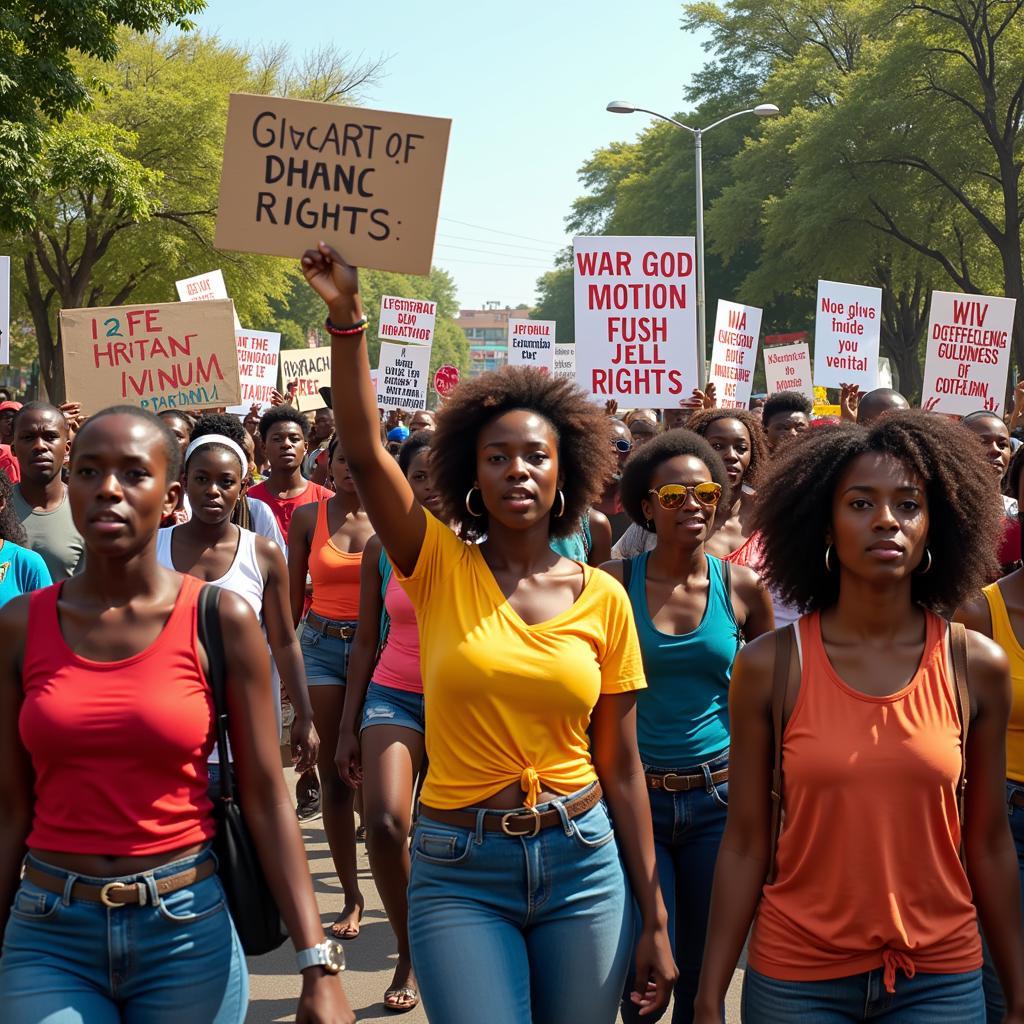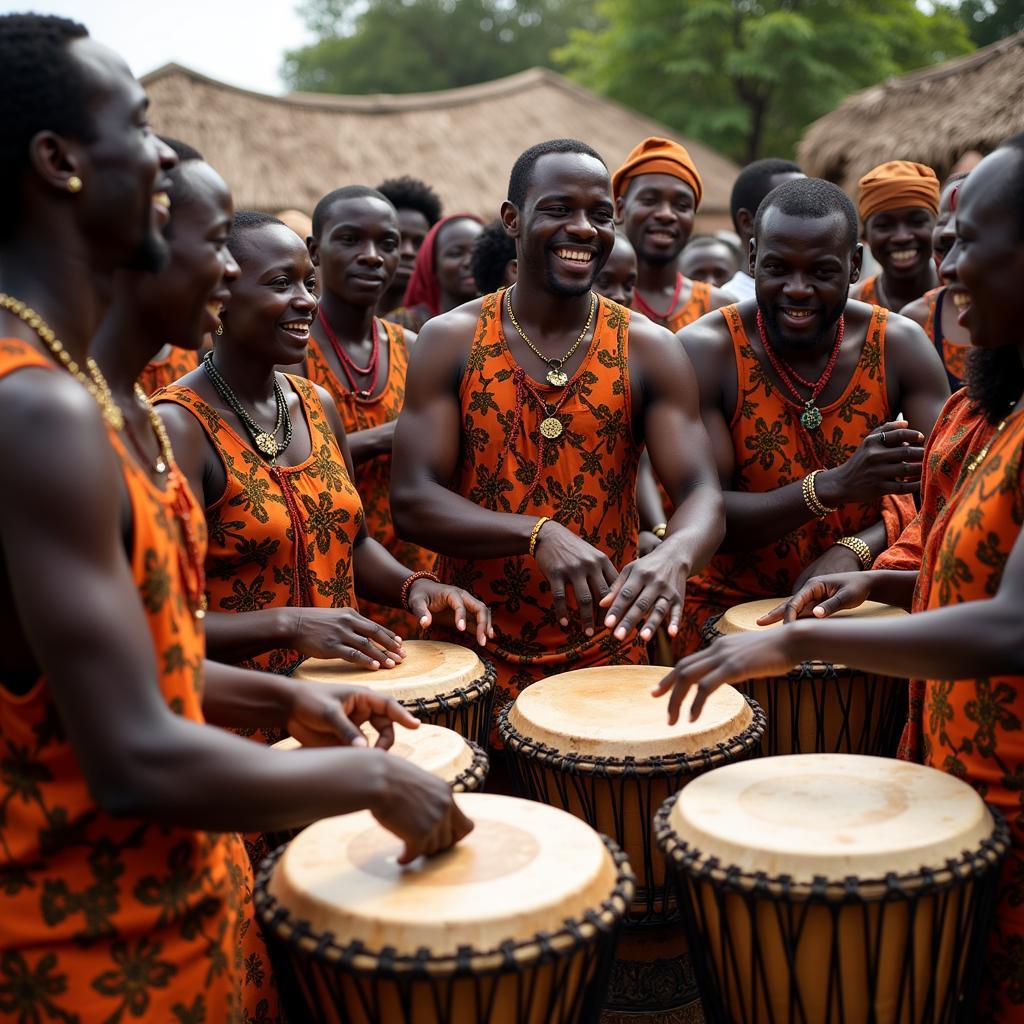Understanding the African Convention on Human Rights
The African Convention on Human Rights, also known as the Banjul Charter, is a landmark human rights instrument that has significantly shaped the legal landscape across the African continent. Adopted in 1981, the convention establishes a comprehensive framework for the protection and promotion of fundamental human rights and freedoms. african convention on human and peoples rights This article will delve into the core tenets of the convention, its historical context, and its impact on human rights jurisprudence in Africa.
Historical Context of the African Convention on Human Rights
The movement towards codifying human rights in Africa gained momentum in the post-colonial era. The Organization of African Unity (OAU), now the African Union (AU), played a crucial role in spearheading this effort. The newly independent African states recognized the imperative to establish a regional human rights system that addressed the specific challenges and aspirations of the continent. The African Charter on Human and Peoples’ Rights emerged from this historical context as a testament to the commitment of African nations to uphold universal human rights principles within their own distinct socio-cultural framework.
Key Provisions and Principles of the African Convention
The African Convention encompasses a wide range of rights, including civil and political rights, economic, social, and cultural rights, and the right to development. It also emphasizes collective rights, such as the right to self-determination, the right to peace, and the right to a healthy environment.
- Right to Life and Liberty: The convention guarantees the right to life and prohibits torture, cruel, inhuman, or degrading treatment or punishment.
- Right to Equality and Non-Discrimination: It prohibits discrimination based on various grounds, including race, ethnic group, sex, religion, political opinion, or social origin.
- Freedom of Expression and Association: The convention protects freedom of expression, thought, conscience, and religion, as well as the right to peaceful assembly and association.
- Economic, Social, and Cultural Rights: It recognizes the importance of economic, social, and cultural rights, including the right to education, health, and work.
- Duties and Responsibilities: The convention emphasizes that individuals have duties towards their families, communities, and the state, and that the enjoyment of rights comes with responsibilities.
The African Commission on Human and Peoples’ Rights
Established under the African Convention, the African Commission on Human and Peoples’ Rights is responsible for monitoring the implementation of the convention by state parties. african convention on human right The Commission receives and investigates complaints of human rights violations, issues recommendations to states, and engages in promotional activities to raise awareness about human rights.
The African Court on Human and Peoples’ Rights
The African Court on Human and Peoples’ Rights complements the work of the Commission by providing a judicial mechanism for the enforcement of the convention. african convention of human rights icj Individuals and NGOs can bring cases before the Court alleging violations of the convention by state parties. The Court’s decisions are binding on the states concerned.
Challenges and Future Directions
While the African Convention has undoubtedly made significant strides in advancing human rights protection in Africa, challenges remain. Implementation gaps, limited resources, and political obstacles continue to hinder the full realization of the convention’s objectives. Strengthening the capacity of national human rights institutions, fostering greater collaboration between the Commission and the Court, and enhancing public awareness about human rights are crucial steps towards ensuring the effectiveness of the African human rights system.
 African Human Rights Activists Marching
African Human Rights Activists Marching
Conclusion
The African Convention on Human Rights stands as a testament to the commitment of African nations to uphold human dignity and promote respect for fundamental freedoms. Despite the challenges that persist, the convention provides a vital framework for advancing human rights on the continent and serves as a powerful tool for promoting justice, equality, and social progress.
FAQ
- What is the African Convention on Human Rights? It’s a charter outlining fundamental human rights applicable to all African countries.
- When was the convention adopted? It was adopted in 1981.
- Who monitors the implementation of the convention? The African Commission on Human and Peoples’ Rights.
- What is the role of the African Court on Human and Peoples’ Rights? It provides a judicial mechanism for enforcing the convention.
- What are some of the key rights protected by the convention? Right to life, liberty, equality, and freedom of expression.
- What are some challenges facing the implementation of the convention? Implementation gaps, limited resources, and political obstacles.
- What is the future of the African Convention on Human Rights? Continued efforts are needed to strengthen its implementation and enhance its impact.
For further information about the African Convention Of Human Rights or related documents, see african convention on human rights pdf. Though seemingly unrelated, you can also explore our resources on african american female singers of the 50's if interested in other aspects of African culture.
Need assistance or more information? Contact us at +255768904061, email [email protected] or visit us at Mbarali DC Mawindi, Kangaga, Tanzania. Our customer service team is available 24/7.


